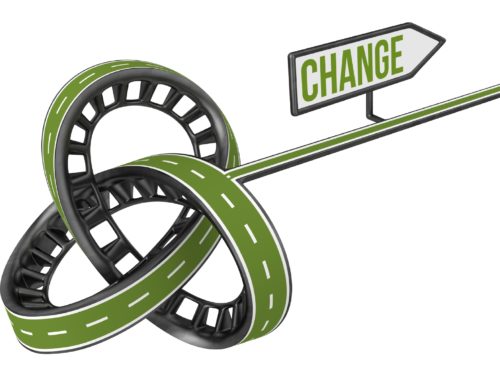Recently, a client asked for help to understand why it struggles with creating a culture that values and engages people. In a moment of absolute clarity and candor, a mid-level manager said, “I think we have to be honest. We don’t really care all that much about the people who work here.”
After the oxygen returned to the room, a senior manager asked for more information. The manager’s response created an aha moment that completely transformed how the organization thinks about its efforts. She said, “We measure and talk about productivity and quality every day. We measure and talk about the importance of people once a year during the engagement survey. And yet, we are surprised that our culture values doing whatever it takes to ship products out the door more than how we engage and value our people.”
Your organization’s culture is defined by its habits. What you expect, enable, measure, reward, and maintain accountability for ultimately determines what your culture defines as important.
Make no mistake. It is easier to measure the tangible results of cost, productivity, and quality rather than the “squishy” stuff that comes when you focus on people. Here are three ideas to help you make people truly important in your culture.
- Be more specific with your expectations. The challenge with people-centric expectations such as “be friendly” and “treat others with respect” is the varying definitions of what those ideas look like in real life. This will take some work, but it will help your team understand what success looks like to you. Look for every opportunity to substitute general statements such as “be friendly” with specifics like “acknowledge anyone within 10 feet.”
- Expand what you recognize and reward. This is the easiest solution offered here. You recognize your team for performance that goes above and beyond expectations to serve a customer or meet a production deadline. Why not do the same for behavior that demonstrates respect, teamwork, or integrity? This can be as simple as setting aside time in every meeting to recognize performance and behavior that promotes a people-centric culture. You can also formalize your efforts with specific awards and include living your values as part of your performance reviews. Behavior that is recognized is repeated.
- Focus on leading rather than lagging indicators. There are only three things you can measure: activities, results, and perceptions. When it comes to the culture, most organizations rely on results and perceptions to tell them how they are doing. Turnover, for example, is a result. Low engagement scores reflect a perception. Both are lagging indicators of what is going on within your organization.
You conduct surveys every year or so. You might look at turnover on a more regular basis, but is it every day or even every month? Do you do a root cause analysis that identifies needed behavior changes?
Activities are the leading indicators that will lead to the desired perception and result if correctly completed. For instance, we know that your team values a supervisor that actively coaches and helps them develop. Are you measuring how many times supervisors conduct those conversations each month? What gets measured gets done, and being conscientious about the activities that create a people-centric culture is crucial.
The easiest time to create an organization that values people is the first day you open for business. For everyone else, building and sustaining a people-centric culture requires a culture change. Communicating a vision and waiting for a positive result doesn’t work.
Culture change follows behavior and performance change not the other way around. The organizations that do the best jobs with expectations, rewards, and metrics have the greatest opportunity for success.
Randy Pennington is an award-winning author, speaker, and leading authority on helping organizations achieve positive results in a world of accelerating change. To bring Randy to your organization or event, visit www.penningtongroup.com , email info@penningtongroup.com, or call 972.980.9857.





